Applications for Ohio Farm Bureau Health Plans now available
Members have three ways to apply: contacting a certified agent, calling 833-468-4280 or visiting ohiofarmbureauhealthplans.org.
Read MoreThe Ohio General Assembly is calling on Gov. John Kasich to rescind his executive order that gives state government control over farming practices for 7,000 farmers and 2 million acres of northwest Ohio farmland.
Ohio House Agriculture Committee Chairman Brian Hill made the announcement during a news conference today at the Ohio Statehouse.
Hill further said the legislature is requesting the Ohio Soil and Water Commission, which must approve Kasich’s action, delay granting approval until it has adequate time to deliberate the consequences of the plan.
House Speaker Ryan Smith (pictured in featured image), Senate Agriculture Chairman Bob Hackett, Hill and other legislators were joined by farmers from the affected area and throughout the state for the news conference, which can be viewed here. OFBF State Trustee Katherine Harrison was among the farmers in attendance.
Speaker Smith told the media “This type of major policy shouldn’t be done through executive order nor should it be done in a hurry.”
Northwest Ohio farmers Mark Drewes and Duane Stateler explained why the executive order is bad policy and shared their experiences with studying and implementing environmentally friendly farming practices that are showing positive results.
More farmers will be on hand to testify Thursday, July 19 at the Soil and Water Commission meeting, which will be held at the Ohio Department of Agriculture in Reynoldsburg. The meeting is scheduled to begin at 10 a.m. Read Ohio Farm Bureau’s testimony before the commission.
Speaker Smith, Republican Leaders Address Executive Order on Agricultural Regulations, Commend Legislative Efforts
Agricultural community seeks collaboration with state to improve water quality
COLUMBUS—Speaker of the Ohio House Ryan Smith (R-Bidwell) today held a press conference with the chairs of both the House and Senate Agriculture Committees to call on Gov. John Kasich to rescind his executive order on agricultural regulations and delay the action of the Ohio Soil and Water Conservation Commission. The executive order seeks to establish numerous policy changes through rule-making rather than the legislative process.
As some of Ohio’s greatest natural resources, the health of Lake Erie and the state’s hundreds of river miles are of top importance. Leaders in the House and Senate came together with interested parties in the agricultural community to commend successes in the legislature over the past several years to address agricultural runoff issues and the impact on clean and healthy waterways.
“The legislature has not been sitting on its hands when it comes to the issue of water quality and nutrient runoff in Ohio,” said Speaker Smith. “While there is more work to be done, we have made tremendous strides and continue to work toward a solution. We invite the Governor and agency directors to come to the table to communicate with all stakeholders, most importantly Ohio farmers, to ensure we create a legislative fix that improves water quality without making farmers’ jobs harder.”
Most recently, the legislature approved Senate Bill 299, which establishes the Clean Lake 2020 Plan. More than $36 million in funding will go toward a variety of programs aimed at supporting Lake Erie and reducing toxic algae. The bill follows previous efforts to prevent nutrient runoff and establish a process for the disposal of dredge material to improve water quality.
“The Ohio House and Senate are calling for the Governor to rescind his executive order regarding additional burdensome and costly regulations on the agricultural industry,” said Rep. Brian Hill (R-Zanesville), chairman of the House Agriculture and Rural Development Committee. “As a farmer myself, we need an opportunity for public input on the issue, especially from the 7,000 farmers in the affected watersheds. I am already impressed by the work they have done to voluntarily improve their practices based on previously passed legislation. We stand ready to join forces with farmers, the administration, and other interested parties to build upon best practices farmers have already implemented to willingly protect Ohio’s lands and waters.”
Members of Ohio’s agricultural community joined legislators to support legislative initiatives and come forward to collaborate in an effort to harmonize the agriculture industry with clean water priorities.
“It is crucial for the agricultural industry and environmentalists to work together, and farmers agree on the importance of this matter,” said Sen. Bob Hackett (R-London), chairman of the Senate Agriculture Committee. “Farmers want to be a part of the discussion on this issue, as they too need to keep nutrients on their fields and out of water runoff. The legislature and the industry should not be left out of such an expansive policy change that would affect thousands of hardworking individuals.”
The press conference comes after an executive order was signed to enforce expansive policy reforms that would further regulate the agricultural industry in order to reduce nutrient runoff that affects water quality in Lake Erie. It can be viewed in full.


Members have three ways to apply: contacting a certified agent, calling 833-468-4280 or visiting ohiofarmbureauhealthplans.org.
Read More

Introduced by Sen. Paula Hicks-Hudson, SB 120 would establish the Urban Farmer Youth Initiative Pilot Program.
Read More

Gases, vapors, and fumes can all create risk. How can we measure and protect ourselves from them?
Read More

The Ohio Farm Bureau’s Young Agricultural Professionals State Committee has named its 2026 leadership and the individuals who will be serving on the state committee for 2026-2028.
Read More

The Ohio Farm Bureau Foundation has multiple scholarships available to Ohio students from rural, suburban and urban communities who are pursuing degrees with a connection to the agricultural industry.
Read More

With 100% bonus depreciation now permanent, farmers can deduct the full cost of a new agricultural building in the year it’s placed in service.
Read More
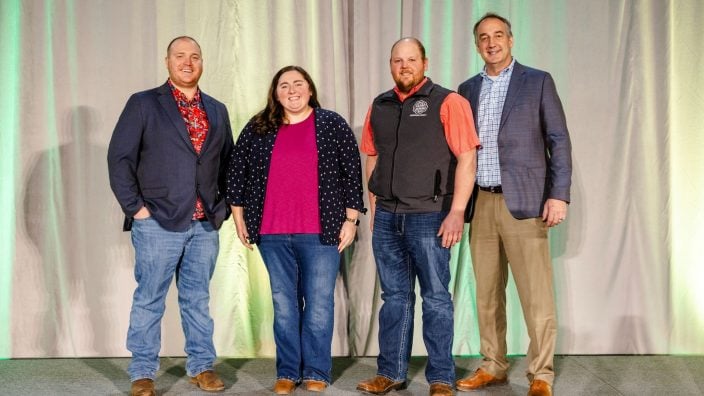
Lincoln Deitrick was named the Outstanding Young Farmer, Denver Davis won the Excellence in Agriculture Award, and Margaret Houts won the Discussion Meet.
Read More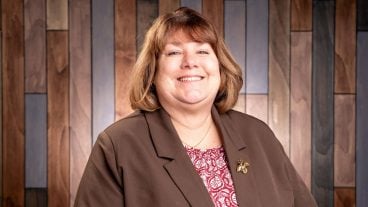
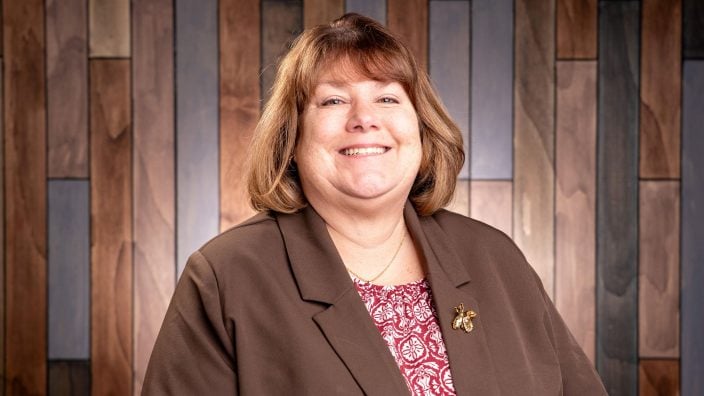
Michelle Downing of Franklin County has been named finance director of county operations for Ohio Farm Bureau.
Read More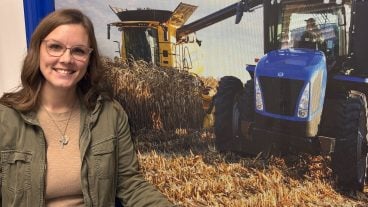
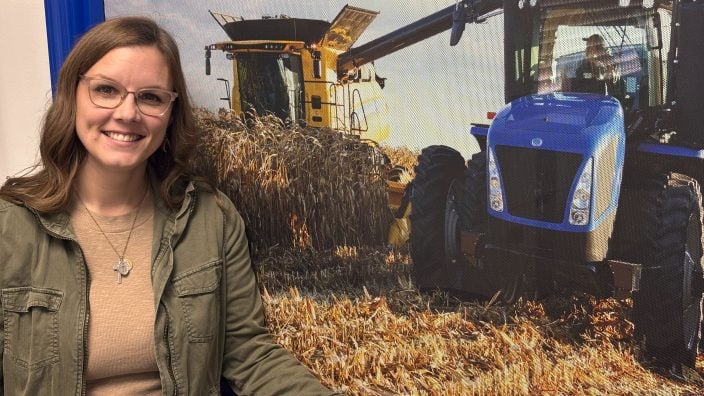
Remember why you joined Farm Bureau and find others that want to join for the same reasons. ~ Alicia Weaver
Read More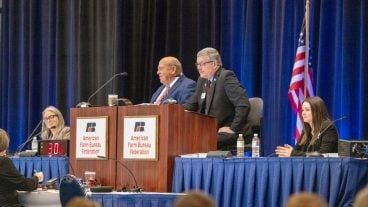
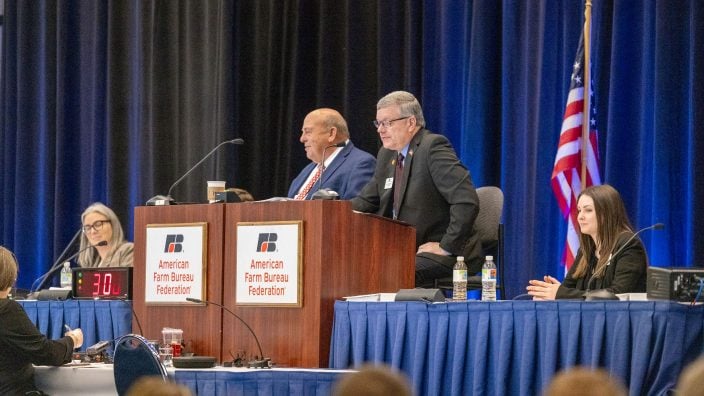
Ohio Farm Bureau brought forth 10 policies to be voted upon by delegates at the American Farm Bureau Annual Convention in Anaheim earlier this week, and all 10 were approved as national policy.
Read More